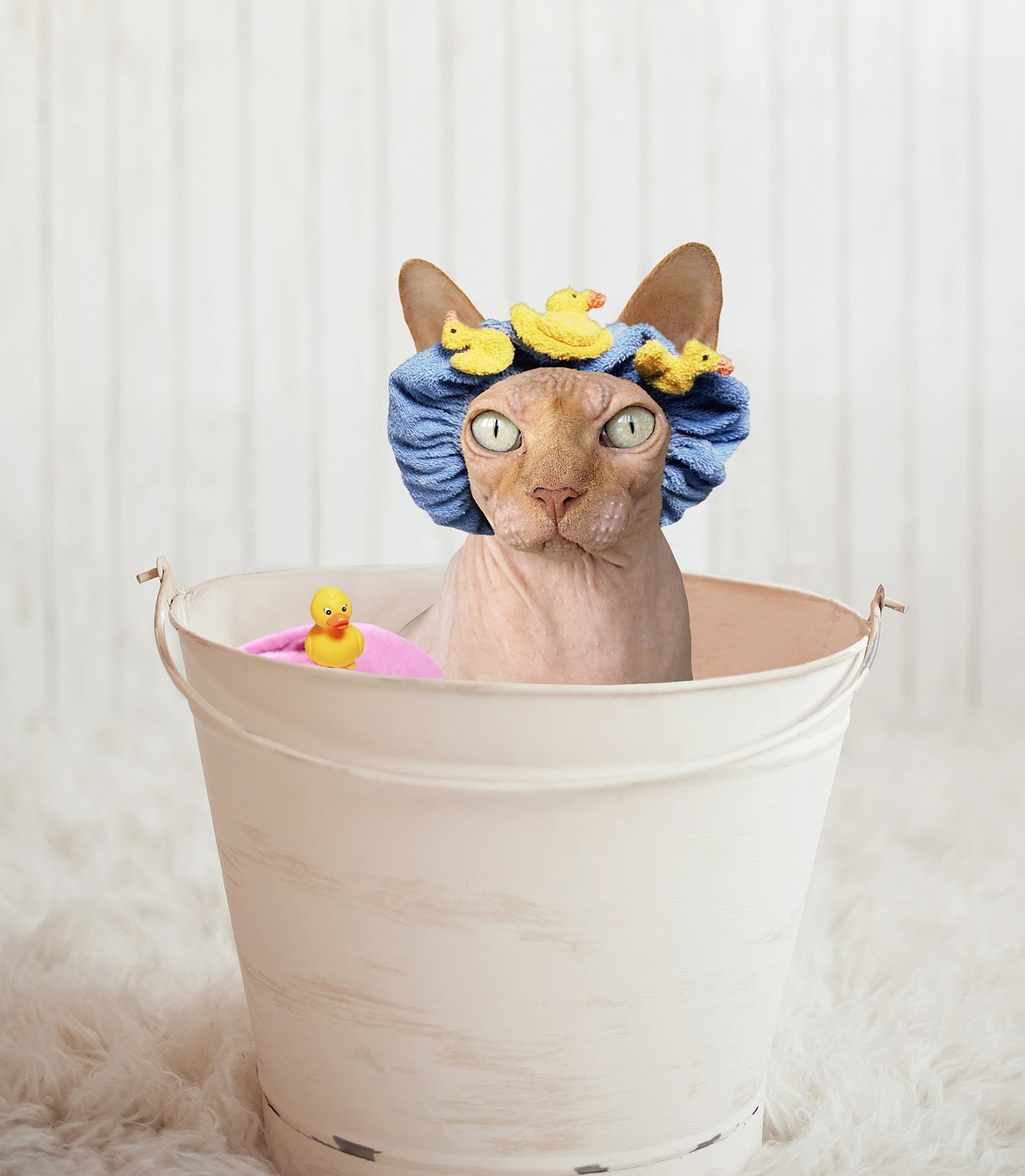
Some owners say their Sphynx cats smell like mushrooms, fish, cheese, bread, potatoes, socks, sweat, and even junk food. So, why do bald cats smell and what can you do to prevent them from smelling?
A mild natural odor is normal in cats but a strong body smell can have a specific cause that needs to be addressed. Sphynx cats and other hairless cats might smell because they need more frequent baths or have skin problems, including yeast infections. Dental issues and ear problems are also common causes of bad odors.
Causes of Body Odor in Sphynx Cats
No other cat breed is as famous for being smelly as Sphynx and maybe other hairless cat breeds. Their odor is not necessarily unpleasant but is a pungent natural smell, which is good to consider before you welcome home a hairless kitty.
It is important to understand the cause of the smell because a strong odor in cats is not usually normal.
Skin Secretions and Oils
Like furry cats, Sphynxes and other bald cats produce body oils and secretions. Unlike cats with fur, however, hairless cats do not have fur to absorb the oils and other secretions, and they accumulate.
The build-up of oil on the skin leads to a greasy appearance, oily traces on your furniture, and body odor.
Skin Infections, Yeast, Allergies
While oil build-up, even excessive, is quite normal, it can lead to several abnormal skin conditions.
Abnormal issues with cats’ skin include infections, yeast, parasites, and allergies.
Infections are common because cuts and abrasions might take longer to heal in bald cats and could get infected.
Yeast infections are caused by overgrowth of Candida fungus. It is so common in hairless cats because their skin is not protected by fur and it has many folds which retain moisture longer. Any problems with immunity can make these animals even more likely to develop yeast.
Bald cats can have skin allergies, and the cat might scratch his or her itchy skin, leading to skin breakdown. Skin breakdown can lead to infections.
Ear Infections
Due to the lack of fur in the ears, Sphynxes have more ear wax build-up than furry cats. Increased moisture can also predispose them to ear infections.
To prevent ear infections, it is important to clean the cat’s ears with cotton balls and a hypoallergenic cleaning solution or mild soap approved for use on cats by a veterinarian. Although Q-tips can be effective tools for cleaning, they can also push ear wax back, so it is better to opt for cotton balls.
Dental Problems
Dental issues can include gum problems, plaque build-up, and tooth decay. Any cat can develop dental concerns, and it is good to start cleaning your pet’s teeth from a young age.
Dental treats are one option to maintain your cat’s dental health. Brushing the animal’s teeth as part of the routine is more effective.
You can use your clean finger to massage your cat’s gums. You can also use a dental brush and toothpaste made for cats to brush the kitty’s teeth. Avoid using human toothpaste, because it is not suitable for animals.
Your cat’s annual veterinarian exam should include a dental exam.
Is It Normal For Sphynx Cats to Smell?
Many cats have a mild natural smell but a strong odor is not normal in cats, although it is a common problem.
Cats, including baldies, have excellent hygiene and do not normally smell. Of course, hairless cats need baths to help them stay clean. If you notice that your Sphynx gets smelly between baths, the cat might need more frequent baths.
If your cat is freshly showered and still smells, consider other causes of body odor. If you don’t notice anything obvious, such as yeast or smelly ears, the veterinarian would be helpful to identify other causes of odor.
How Often Should You Bathe a Sphynx?
Sphynxes need regular baths to remove secretions from their skin. Some cats also benefit from having their skin moisturized.
Usually, the owner finds a specific routine that works well for the cat but the following general guidelines work for most bald kitties:
- Hairless cats need weekly or biweekly baths in warm water, using gentle cat wash or other mild soap, castile soap, for example.
- You can sometimes resort to sponge baths for your cat, especially if your pet is not a fan of water. Use a cloth with some soap and one with just water.
- Using gentle disposable dander-reducing cat wipes can be a part of the routine and could be very helpful with dander control
- Use a massaging brush to improve blood circulation to the skin. Most bald cats enjoy being brushed.
- You could try moisturizing your cat’s skin. Since felines love grooming, the moisturizer should be non-toxic to the animal. A small amount of coconut oil is a good option. After you apply coconut oil on your cat’s skin, wipe excess oil with a cloth.
- Inspect and clean the paws with a wet washcloth because bald cats are prone to getting dirt stuck between paw digits.
- Use a cloth or cotton balls with a cleaning solution to clean their ears.
Recent Posts
Sphynx Donskoy Sphynx and Donskoy breeds look similar but they are not related. Different mutations cause these cats' hairlessness. Donskoys are heavier and have more variation in how much...
Whiskers are a sophisticated sensory mechanism. How do bald felines maintain their balance without whiskers? Sphynxes and other hairless cats can balance without whiskers because whiskers do not...

